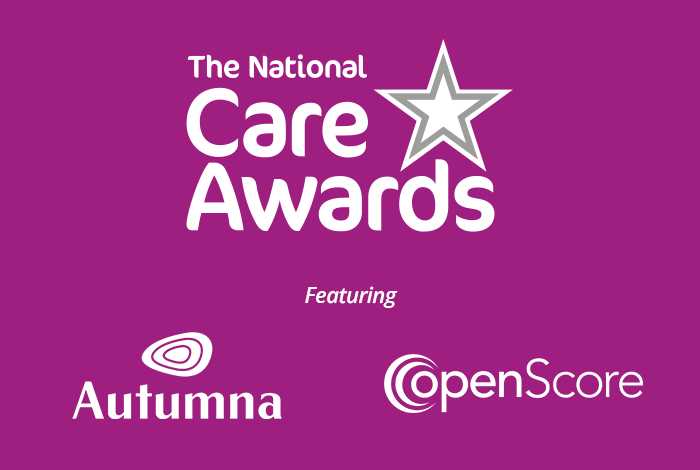Posted by Siobhan Stirling
Social care calls for reform of failing hospital discharge system
93% of care providers would like the government to reform the hospital discharge process, according to ground-breaking new research by the UK’s largest and most comprehensive later-life care directory, Autumna.
The survey of more than 500 care homes and home care agencies found that:
- 93% of care providers would like to see government reform of the hospital discharge process
- 85% of care providers who have a positive relationship with their local hospital discharge teams still want the process reformed
- 24% of respondents say it takes more than a week on average for patients declared fit to leave hospital to be discharged into their care
- 7% of respondents say it takes three weeks or more on average for patients declared fit to leave hospital to be discharged into their care
"Our survey, which is the first to probe the experiences of social care providers of the hospital discharge system, shows a system that is failing due to poor relationships caused by poor communication,” warns Debbie Harris, the founder and Managing Director of Autumna, which has developed a digital solution to speed up hospital discharge.
“Our findings are a wake-up call to Kier Starmer and Wes Streeting that the system is broken and urgently needs reforming. The pressures are only going to get worse as our population gets older, so we need to fix the system now, before it completely breaks down,” she adds.
Delayed hospital discharge costs the NHS around £4.8 million a day(1). It also results in: worse health outcomes for elderly patients; other patients not being able to access hospital services; and increased pressure on local authorities, as elderly patients who are stuck in hospital end up with greater care needs.
Autumna’s Hospital Discharge Report: Care Providers’ Perspectives shows that four in ten social care providers do not receive referrals from hospital discharge teams.
“Autumna’s Hospital Discharge Report clearly outlines a system that is failing and will only get worse unless remedial action is taken,” comments Professor Martin Green OBE, Chief Executive of Care England. “However, this report also highlights the fact that there are solutions, and if people worked effectively with the social care sector and gave it the needed resources, the solutions would be easily and readily available.”
“We have elderly patients stuck in hospital when there is sufficient care to support their discharge, either in a care home or with support at home,” comments Harris. “Hospital discharge teams do not have effective tools to identify available, appropriate care quickly and are overly reliant on some providers, meaning elderly patients are denied access to the full range of appropriate support available to get them out of hospital.”
48.7% of care providers do not feel the hospital discharge teams understand the care they offer. A third of providers (33.4%) say they can’t talk to discharge teams when they need to. Of the care providers who do receive referrals from hospital discharge teams, a similar number (34.0%) say they don’t have a positive relationship with them.
17.0% of care providers questioned say the average length of time for discharge into their care after a patient has been declared fit to leave hospital is one to two weeks, while 7.3% say the average length of time is three or more weeks.
The top reasons for delays in patient transfer to social care providers are because the funding is not agreed, there is insufficient information and lack of communication. 45.5% of care providers say information provided by hospital discharge teams is not accurate. 44.6% of care providers think the information provided by hospital discharge teams is insufficient to make an initial assessment on admission suitability.
“The care sector has the capacity, the expertise and the enthusiasm to be part of the solution,” advises Harris. “What’s more, speeding up hospital discharge will help the commercial viability of providers who face increasingly squeezed margins; 518 care homes closed in 2023, with a loss of 14,169 beds(2)."
More than 15 million people are projected to be over the pensionable age by 2045(3), with the number aged 85 and over expected to increase by 1 million to 2.6 million over the same period(4).
“With an ever-ageing population, continuing to fail to find a solution to speedy, efficient and appropriate hospital discharges is unsustainable – for the NHS, for local authorities, for the taxpayer, and – most importantly – for our elderly,” urges Harris. “We challenge the government, health and social care leaders to think imaginatively to rise to the challenge.”
Hospital Discharge Report: Care Providers' Perspectives
Our survey quantifies the frustration experienced by care providers with the hospital discharge system, identifying key reasons for delayed discharge. Moreover, it provides evidence to inform national policy to improve the current system, so our elderly get the care and support they need, when they need it. This, in turn, will help to alleviate the strain on hospitals and reduce the financial burden on the public purse.
Regional discrepancies
The research also found wide discrepancies in the experiences of elderly people awaiting discharge from hospital and communication between hospital discharge teams and social care agencies. While 95.6% of elderly patients in the East of England are admitted into the care of a provider within a week of being declared fit to leave, and a discharge process of 0-2 days is reported by half of care providers in the North East, half of providers in Scotland say discharge takes more than a week on average, while 15.3% in the West Midlands and 10% in Yorkshire & The Humber say it takes more than three weeks on average.
Nearly eight in 10 (79.3%) of providers in the North West report a positive relationship with hospital discharge teams, but fewer than half of respondents in the West Midlands agree (45.5%). While nearly two-thirds of providers in the North West feel the discharge teams understand the care they offer (65.5%), only 42.9% of the respondents in Scotland believe this to be the case.
For full national and regional results, incl. quotes from local care providers, download the full report.
Rethinking hospital discharge
Autumna has developed a pioneering technology solution for hospital teams to speed up the discharge of elderly patients into appropriate care: the Dashboard for Accelerated Discharge. In just 60 minutes, DAD creates a shortlist of pre-qualified, local, appropriate and proactive care services with availability. With a 75% success rate in finding an appropriate care solution, DAD saves hospital discharge teams time and money, and improves patient experiences and outcomes.
Sample comments from care providers
“Discharges are often incomplete with patients arriving without medication or without discharge letter.” - Care home, London
“The whole discharge process is a shambles in our area. Information about patient welfare is hard to come by, as are arrangements for discharge. We have regularly had clients who have come home when not having the right environment to come home to, so get readmitted. We have clients who we don't get told are coming home, and they have been sent home in a taxi only to find they can't get in and they get readmitted. We have clients who are due for discharge and we have everything in place for their return and the hospital transport is delayed/forgotten/cancelled.” – Home care provider, South East
“We have recently raised a safeguarding against the hospital regarding unsafe discharges, lack of information on discharge, referrals not submitted to other professionals, referrals to district nurse incorrect therefore delaying discharge, incorrect patient information (wrong person).” - Home care provider– West Midlands
Methodology and sources
568 care providers (care homes and domiciliary care providers) across England, Wales, Scotland and Northern Ireland were questioned between 12 June 2024 and 18 July 2024 about their experiences of the hospital discharge process.
- Figure arrived at by multiplying the King’s Fund estimate of the cost to the NHS per bed per day of delayed hospital discharge of £395 (The King’s Fund, The hidden problems of delayed discharges and their costs, March 2023) by the total number of patients in hospital who no longer met the criteria to reside on 30th June 2024 (NHS England and NHS Improvement data collection, Acute Daily Discharge Situation Report, 30 June 2024).
- Care Quality Commission data.
- Office for National Statistics, National population projections: 2020-based interim, January 2022
- Office for National Statistics, National population projections: 2021-based interim, February 2024
Images
Profile pictures of Debbie Harris and Prof. Martin Green OBE are attached for use with this story; or download from: Autumna discharge report pics
About Autumna
Autumna is the UK’s largest and most comprehensive later-life care directory. Specialising in the self-funding market, it helps families and individuals make informed choices and identify services with the highest standards of care. Autumna is the leading voice and champion for self-funders and has the UK’s most substantial database for the social care industry, obtaining access to invaluable statistics from more than 26,000 care and retirement housing providers in the UK.
Proudly independent, the company offers completely impartial advice and does not take referral fees from care providers. It aims to improve transparency and standards across the entire elder care sector. Following its establishment in 2019, more than 2.5 million care seekers each year now access Autumna’s directory.
About Debbie Harris
Managing Director and visionary pioneer, Debbie Harris, has been driving significant change in the social care sector for the past 5 years. Debbie is a champion and leading authority for self-funders within the sector and has influential connections, working alongside some of the UK’s leading care associations, plus large and small care providers. These include Care England, The Homecare Association and LaingBuisson.
For copies of the report and more information, incl. interviews with Debbie Harris or care providers
Siobhan Stirling: siobhan@sharpminds.agency , 01892 570863, 07990 543829
Ellie Knight: ellie@sharpminds.agency , 01892 570863
Other articles to read
Autumna News

Autumna News
New Partnership Delivers Real-Time Alternative to CQC Ratings
July 31st, 2025
What if you could prove your care quality daily without a single inspection? The CQC can't do it, but this pilot just might.

Autumna News
Leading Care Sector Awards backed by Autumna Data
May 12th, 2025
Autumna partners with The National Care Awards 2025, bringing data-driven insights to the Best Dining Experience and the innovative OpenScore Leader Award. Learn how this collaboration is recognising outstanding care homes.

Autumna News
Autumna Partners with AccessAva for Free Social Care Legal Guidance
March 31st, 2025
Autumna & AccessAva partner to offer free legal guidance on later-life care. Get expert support on funding, eligibility, & disputes.






